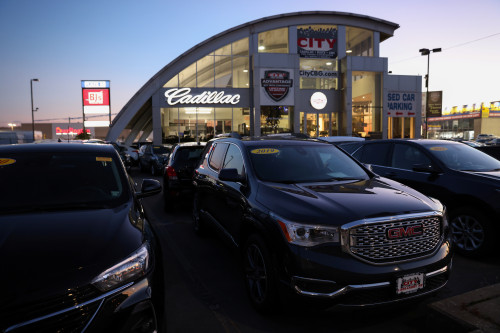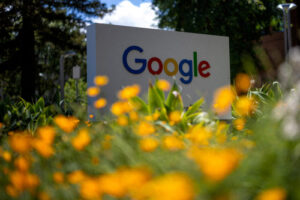By Nora Eckert
DETROIT (Reuters) -Automakers have been absorbing billions in added expenses since U.S. President Donald Trump’s tariffs took effect in April, sparing American car shoppers from sticker shock. So far.
Car prices were supposed to have bolted higher by now, auto executives and analysts predicted. But that has not happened, mirroring some other industries where companies have decided to eat added expenses rather than passing them on to consumers.
The average manufacturer’s suggested retail price, or MSRP, on new vehicles in the U.S. rose less than 1% from mid-March to mid-August, according to car-shopping site Edmunds.
That restraint from the automakers has carried into this autumn, as car brands are implementing only modest price increases as they roll out their 2026 model-year lineups. Car brands tacked on 3.3% to their average sticker prices in August, according to Cox Automotive, up from last year’s increase, but in line with historical averages.
But now that it appears many of Trump’s tariffs are likely to stick, carmakers are under growing pressure to raise prices, analysts and dealers said.
General Motors said it will face up to $5 billion in gross tariff-related costs this year, while Ford cited a $3 billion gross hit. The car companies have a few levers they can pull before burdening customers with that added cost, from absorbing it internally to asking suppliers or dealers to shoulder some.
The reticence among car executives to stick customers with tariff-related expenses reflects the reality that American consumers might not be able to stomach significant price increases, after a multiyear run-up in new- and used-vehicle prices following the pandemic. Average transaction prices have risen about 30% since 2019, to $49,077, according to Cox Automotive.
Randy Parker, CEO of Hyundai North America, said the South Korean automaker is holding firm on pricing to guard against losing customers to rivals, even though tariff costs eroded the company’s bottom line in the second quarter by about $600 million.
“Our priority remains ensuring that we’re competitive through affordability,” Parker told Reuters this month.
Tariff-related costs amounted to nearly $2,300 in added cost per vehicle in June on an annualized basis, if applied to all domestic and imported vehicles, according to an analysis from consultant and former GM executive Warren Browne.
Browne believes that carmakers will begin to raise prices starting in the second half of the year to protect their bottom lines, even though those higher prices will dampen demand and lead to an overall drop in U.S. vehicle sales.
COMPANIES TO RAISE PRICES GRADUALLY
Kevin Roberts, director of economic and market intelligence at online marketplace CarGurus, also predicts that automakers will gradually raise MSRPs and focus more on pricier models with higher profit margins.
Resisting price hikes has allowed companies to avoid blowback from Trump, who has publicly criticized Walmart, Amazon.com and other companies that have signaled plans to raise prices to offset tariff expenses.
Automakers in some instances have hiked prices on specific models, including Ford’s Mexico-produced vehicles, some Subaru models and at luxury brands like Porsche and Aston Martin.
Automakers also have been subtly passing on some tariff costs to consumers without direct price increases, analysts and dealers said. For example, destination fees, which are essentially the delivery fees to the dealership, rose 8.5% for the 2025 model year, to $1,507, Edmunds found. This was a much more significant jump year-over-year than in the past decade.
Mike Manley, CEO of large dealership chain AutoNation, said during a July earnings call that he expects automakers to maintain competitive pricing on their top models, and implement minor adjustments across the entire portfolio over time.
Scott Kunes, chief operating officer of a U.S. Midwest dealer group, agrees, saying the carmakers do not want to lose customers to competitors by jacking up prices too quickly.
“There’s still a very competitive landscape out there and market share is so huge to these manufacturers,” he said. “It’s going to be very, very gradual.”
(Reporting by Nora Eckert in Detroit; Editing by Mike Colias and Matthew Lewis)






